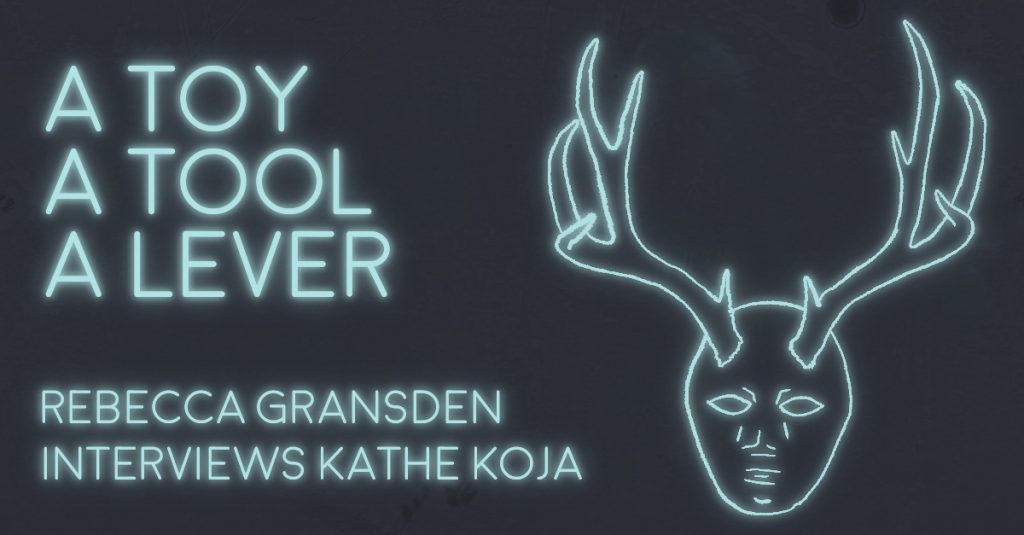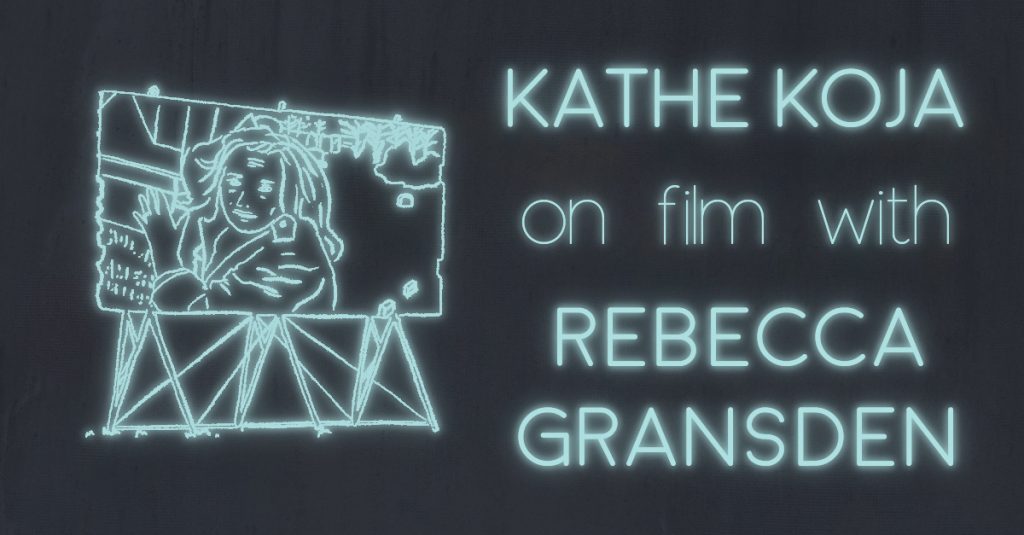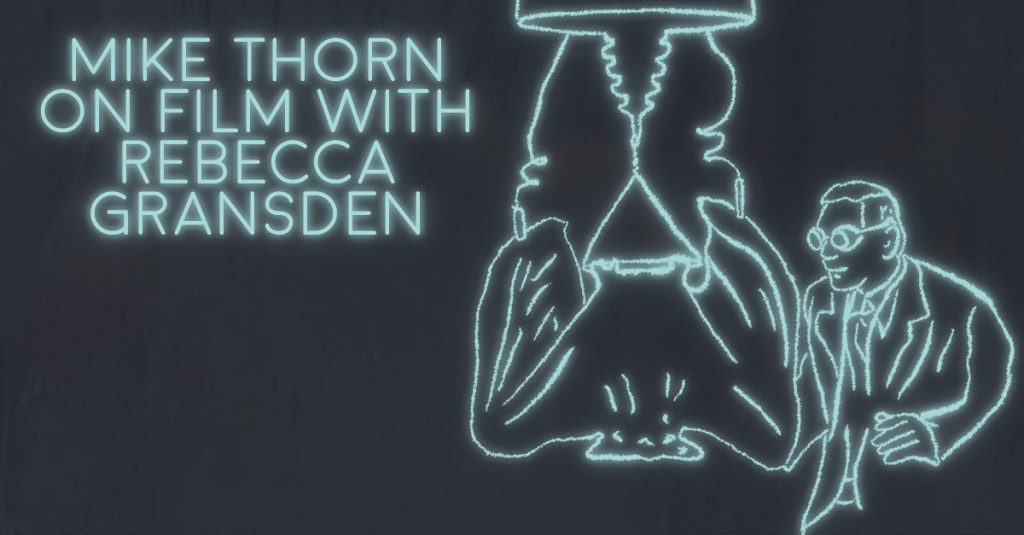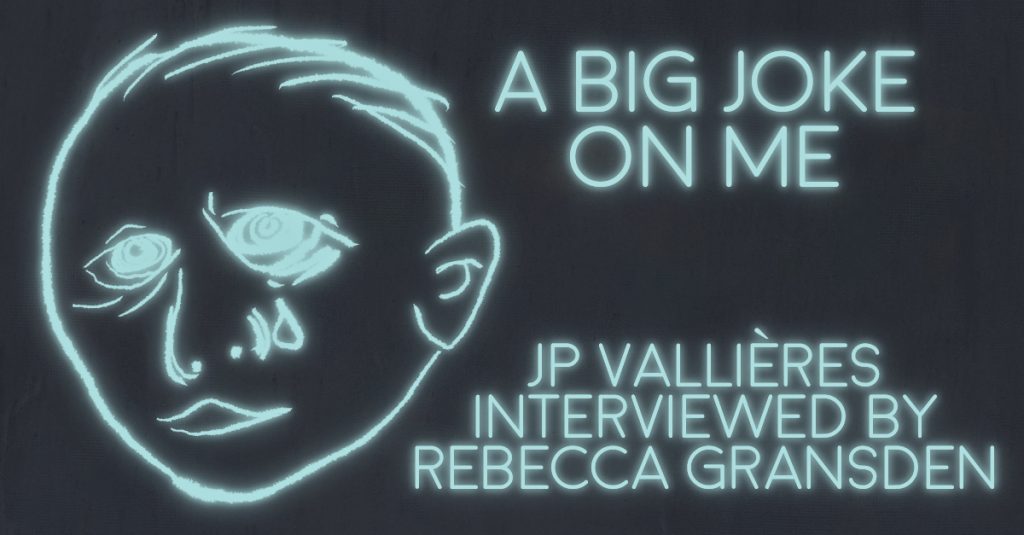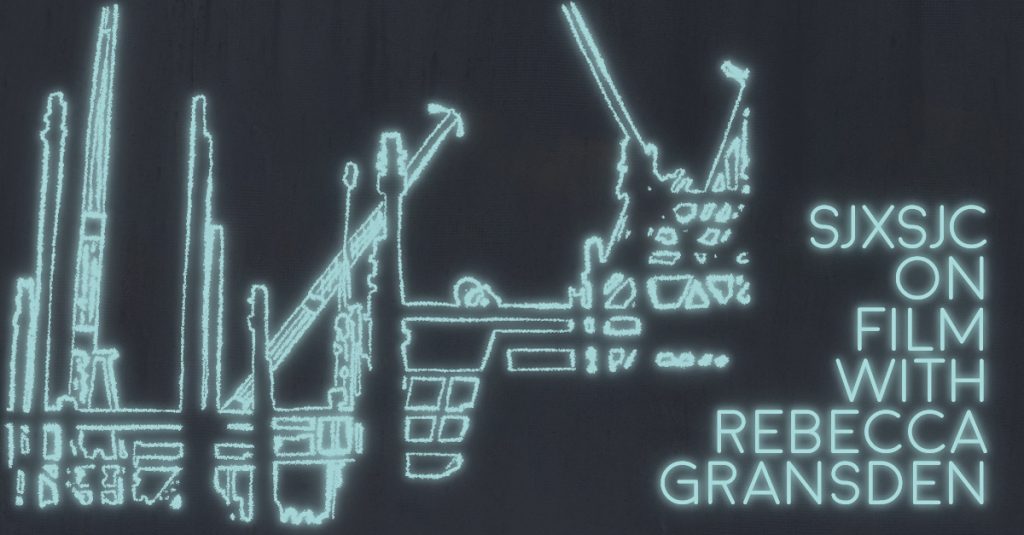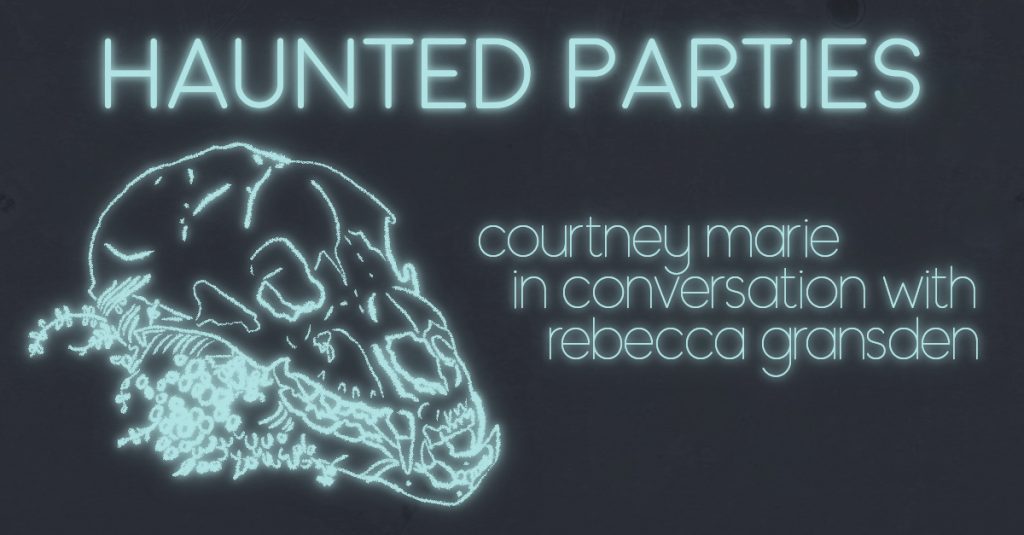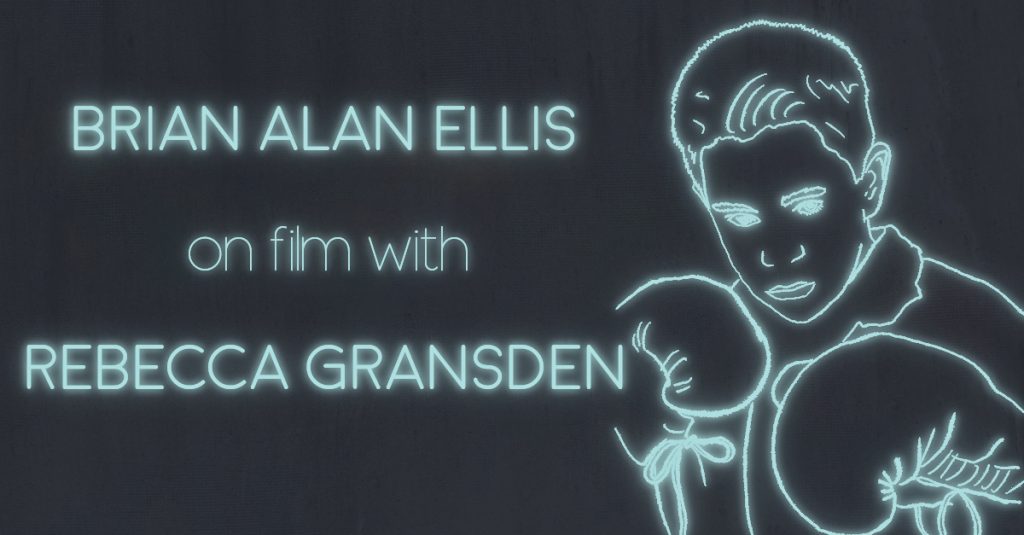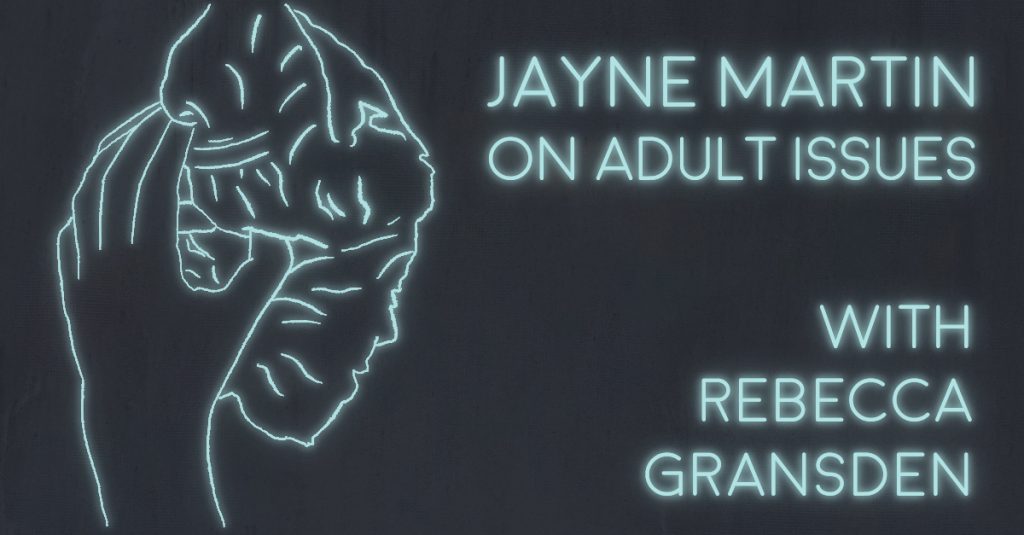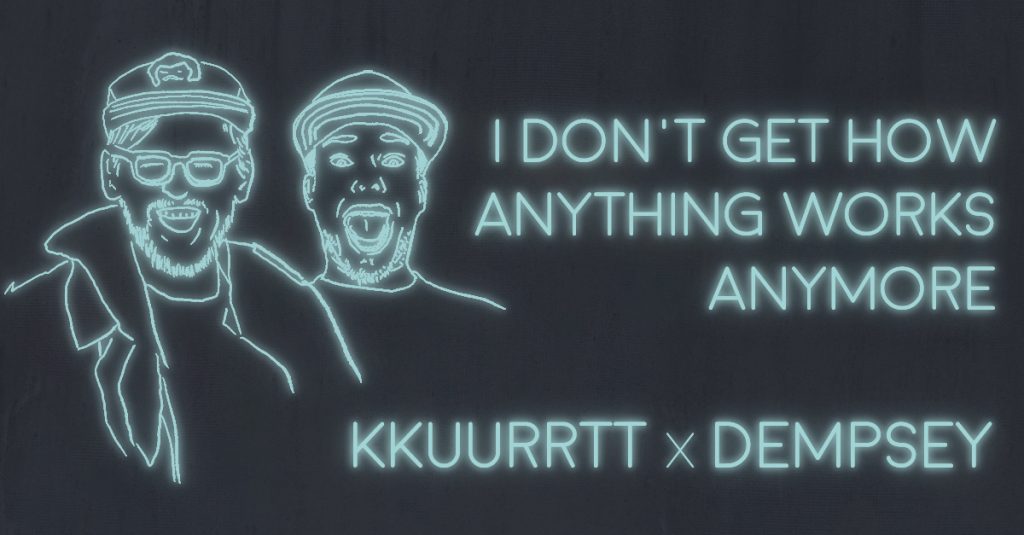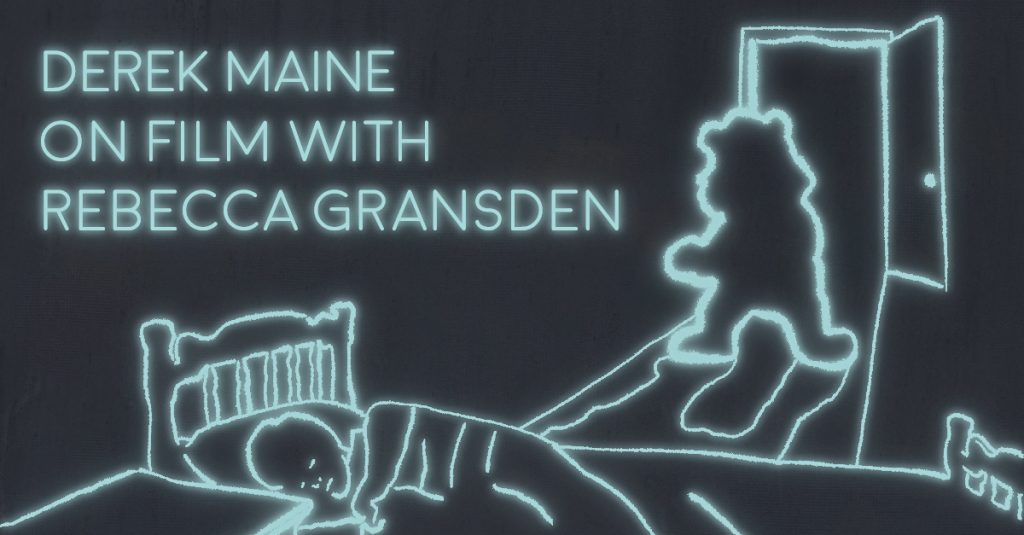TYLER DEMPSEY: Going to a music festival ten years after you didn't like going to them in the first place. And, just not being able to get that feeling you could back then. Understanding from now on it's a memory unreachable. I've never read a book that used this location/theme combination. Did you come up with that, you bastard?
KKUURRTT: Hahaha I mean I wrote like three versions of this location before I found the theme of chasing a memory unreachable and they were all just pure fucking trash. 10K word false starts that will never see the light of day. Like, look at how fun this thing is wow. But don’t people already kind of know what is fun for them? One day something just clicked, the first line of the book really, the idea of a character being over this thing he claims to still treasure and it all just worked from there.
So, the location was there the whole time, but the theme came later. I don’t know if that’s the most effective way to write, but I always just start with an inkling and then let it develop on its own. When you write, do you outline, do you plan? Is theme x location a concern?
I’m more in love with this idea of ‘having fun,’ than having my chain yanked tight in anticipation of anything providing it.
Easier said than done but I love the ethos. I hate when I forget this kind of shit and settle into some caveman brain kind of shit, existing on survival mode that doesn’t even apply to this situation I find myself in.
An older friend (97) said the trick to not blowing his head off was being sincerely interested seeing what his brain might think next. I would blow my book’s head off if it didn’t offer results I didn’t anticipate. Heard common burnout, in nonfiction, comes after the research stage. Like, your brain worked through whatever made it interesting.
Bye.
But if you don’t take notes. Just let it swirl around. It’ll remain interesting and sustain the marathon of book writing.
The biggest points will stick. The others, the brain’s ass will shit out.
I’ve never gotten past the research part of a research-heavy project. Collapse under the weight of more and more and did I do enough? The only research I let myself do now is in-the-moment kind of stuff. Even then sometimes I just use a [placeholder] and come back on the rewrite. Maybe I’m a fuck research except for that of a life lived kind of guy. I guess that’s what they mean by writing what you know. Not like in any “this is the only way” sort of way. More like, why not use the tools you already have?
I never know what’s about to happen in front of the blinking vertical-line on my screen. A character worth chasing presents a melody to me. The longer I mine it–see where the particular combination of tones leads them–the more image chips out of the marble. A novel I wrote last winter was an exception. Dreamt it. Then had a sense of urgency to get it down. A crime novel set in a fictional, Midwestern town. Realized once I started I needed a map/character outlines/other shit I hate.
Power for you to be able to pull this off. Glad there was benefit in map/character/outline. Some people only write that way and I wish I could. My brain just gets bored by this process and starts acting out against itself. Self-sabotage my entire life any time someone told me what to do—and that includes me. It’s fucked.
Hope I never do it again. Was it scary writing a book that spans only a few days? Or did it allow you to settle in on the line-level. I gotta be honest—I don't read a lot of Twitter-writers engaging a reader like this—you're actually funny.
The schedule kept grounding me. Always pulled me back to a timetable, even if of my own creation. Otherwise I have the nature to get lost in my diatribes, rather than being in the moment. Time isn’t real when you’re on drugs, so it’s like all really fast or really slow and it didn’t have to be 10 pages = an hour or some shit. Just as much as I wanted to hyperfocus or not. But time kept pulling me out of musings or philosophy or high-speak and into narrative. And even though there’s not much of a narrative, days passing became a sort of replacement narrative. The original version was five days instead of four, but I worked with an editor who helped me pull back slightly. There’s something infinitely relatable about just a weekend. Who hasn’t had one of some comparative nature? I don’t want to call it a bender, but yeah… eventually there is a return to normalcy.
Thanks for the compliment on being funny. I feel like such an asshole when people on twitter are like “are there any actual funny books,” and I’m like ahem… Are there any other books that make you laugh? Are we supposed to laugh while reading fiction?
Agree. The weekend works on many levels. It’s juuuuust long enough. But not too.
Wasn’t wired for drugs. Even in my 20’s. After 3/4 days I needed 48-hours to grind my teeth in soft lighting. Felt strung out toward the end of your book. Seriously, I wouldn’t say it’s a ‘difficult’ book, but it’s not as easy as railing coke.
It’s just not sustainable. I feel like people think “I’m just a drug guy,” and sure I’ll advocate for experimentation all day, but the book is also very clearly trying to come to terms with the notion that maybe this isn’t the best. Feeling strung out by the end of the book was by design. I got strung out writing it. Too much of a good thing…
Being stuck in a cosmically-unpleasant situation like your narrator hits different. Like watching, Seinfeld, or something.
Funny’s hard. Which is why your book’s refreshing. Zac Smith tickles me in an intellectual way. I see his ‘flex,’ if you could say he has one, as subversive. Very: don’t look at me, but please, please look. He’s phenomenal. Stuart Buck’s recent novel, Hypnopony, made me laugh.
Lots of writers seem to be doing similar, highly-cerebral comedy. Aimed at a writerly-audience—Cavin, Sam Pink, et al.
LOL on Zac. His writing definitely has a flex. I see the look at me/don’t look at me kind of thing, but I also think it transcends even beyond that. I can’t wait to see what Zac is writing in thirty years. Cavin and Sam, I’ll ride or die on both of their writings. Haven’t read a page I haven’t loved. I need to read Hypnopony, fuck.
We love seeing people get what they deserve. As the situation becomes more a mockery of itself, tension builds, almost in the way horror operates—even minor situations are imbued with oh-shit-what’s-gonna-happen feels. Being one step away from a k-hole…
Just putting people in worse and worse situations. And drugs make that even easier. Like I knew a k-hole and a bad trip were incoming, but I had to save them for the right moment. Tension and release. I love horror movies, but can’t really fuck with horror fiction. Guess I’m more inclined to let comedy be my horror. Same kind of visceral reaction… just horrible shit happening to people. Except here, it’s funny.
Roland’s musings act like an adjacent narrative, then SNAP back into the flow of what's going on at the festival. And, because the paces (like, how they say people in different cities walk different speeds) aren't aligned with one another in each narrative, there's a pleasing warble when the reader gets to pull off that merge. Like nailing a simple trick. An ollie. You still feel good.
The musings to narrative snap IS exactly what I was going for, something that could balance interiority and presence in physical space simultaneously. I really appreciate you comparing it to an ollie. There’s an excitement to it, even if it’s simple. The author who inspired this stylistic effort most is probably Henry Miller. But his obsessions are more fucking-influenced than mine.
It’s just the way my brain works and I couldn’t do anything else if I wanted. How do you translate your thoughts to the page? Do you silence some and let others through? I’m sure everybody’s process is different, but mine is 100% apparent on the page.
Agree, everything’s on the page. Henry Miller, haven’t read him. What book/s operate/s similarly?
Sexus, Plexus, and Nexus and Tropic of Cancer/Capricorn are all too long and the magic trick wears off well before you’re done. The books of his that get it most right in my opinion are Quiet Days in Clichy and Big Sur and the Oranges of Hieronymus Bosch, but I like to read Miller more for tone and style than narrative anyway. Can pick it up, read 50 pages, and put it down for six months. I haven’t read everything, nor do I really intend to.
I translate my thoughts to the page in a murderous sprint. Most of what’s left, after editing, is propelling plot.
I DO try to reward in craft-y ways. Another reason I’m drawn to your work, I’m sure. My novel, Consumption, switches narrators each chapter, so it has that ollie-reward. Readers get to know narrators/voices, and don’t need fancy bells and whistles, like me saying who’s talking, to know who’s talking. Writers who pull this off, I see as magicians.
I had a screenwriting teacher when I was 18/19 tell me—as nice as she could—that all my characters sounded exactly alike—like me. Probably why I just tend to write in first person present. I have a lot of ideas that need close narrative distance to multiple people, and I always feel incapable.
Do you write on drugs?
Write high, edit sober…? No, write sober, make stranger/sillier high, edit sober.
It’s occasional. Like a pass or a paragraph. Moreso I let music guide me. Obviously I was listening to a lot of house music when I was writing this. Just 2 hour set after 2 hour set, putting me in that forward momentum. Though, music depends on the project. I write a lot to the Grateful Dead and Kanye. Right now the thing I’m working on is Aphex Twin. We’ve been talking music in the DMs. Do you use music to write? Does it change?
Music’s huge. It’s a daily necessity. I struggle with mental health and can only get by off the music in my head a few days before I need a massive aural-assault from the outside to set me straight. I use music to check whether what I’m writing/reading is good. If it can’t compete with mid-volume background noise for my attention, it probably isn’t.
I’m going to start using that as a litmus test for both things I’m writing myself and also reading. Nothing worse than reading the same sentence over and over. Can music focus me away from my phone? Here’s hoping. If not, trash it.
What were your favorite tropes to riff? Aurora? The druggies/dealers? So many prepackaged images, you could really go crazy there and I found myself able to catch up, even if I got lost for a second. Kind of BLE-URBG'ing myself back into the scene.
There’s this total visual overload at a festival, and I did my best to capture it, but I don’t know if that is even possible through prose—especially as someone who largely lays off of description.
I think my favorite tropes were describing one or two people in passing: the viking men or the guy in a suit or the couple out of basic raver monthly. Find a way to cut them down to size with a half a phrase rather than a full description. So much going on that it always felt like a flash of this and a twist of that would work. I feel zen in a situation of overstimulation, but it’s impossible to catch all of the details.
Had a poetry professor say we write about our obsessions, and I definitely got some out with this book. Might try to avoid drugs in the future. Try and come at it from a different angle. Do you have obsessions that refuse to leave your writing?
I had fun writing Crime. The one I enjoyed most, though, was the Californian. Already Dead was the first book I read that made me want to write that trope. Lived in the Bay Area for a few years. Made me realize these unique cultures—the Bostonian, Californian, New Orleanian, the Southerner, the Appalachian–naturally brought so much to the fiction table. That book has such real characters. Have you read it? One of Denis Johnson’s lesser-knowns.
There’s something so cool about California lit. It has the ability to be a million different things to a million different people. Such thematic differences between say Good at Drugs and Body High, which are the only recent California drug novels of my recent memory. I’ve only read Jesus’ Son and Largesse of the Sea Maiden, but Johnson is a king, so I can’t see why this wouldn’t be as well.
Read the plot summary and it was an instantaneous cop:
Can’t wait.
Awesome. Body High floored me.
Obsession is an obsession. I riff origins, often. Surreal seems pervasive. Thinking of Brian Evenson, Stephen Graham Jones, etc., here.
Hell yeah. You ever watch any De Palma movies? I feel like he nails this.
I haven’t. Sounds like something I should pirate.
I imagine if anything my career throughline will be music more-so than drugs. This is my rockstar shit… fictionalizing rock star shit. Honestly, the only thing Dave Chappelle has ever said that was of any interest to me was in his Block Party movie directed by Michel Gondry: “Every comic wants to be a musician. Every musician thinks they're funny. It's a very strange relationship that we have. Some musicians are funny. Some comedians can play.”
I’m neither, but writing both.
Good at Drugs is about belonging. Or not. Didn't realize how whored-out-for-community every facet of festivals sadly broadcasts itself being—sunglasses/face-paint/glowsticks, groupthink, I-knew-about-this-band, yoga. The only similar trying-this-hard-but-failing-sortacommunity I can think of is the Writing one. Do you mind talking some on your own sense of alienation? What, if anything, have you gotten from the writing community in making this book? How’d you come by the Anwyll blurb?
Welfare is so so good, so I just shot him an email and he dug it. Felt really quite fortunate. I still feel like I owe him, but I don't know how or what…? The communities can be very similar, except doing drugs with people is definitely this bonding experience and I’m pretty sure I was the only person at AWP on acid that year. I got my MFA and felt like an outsider because I didn’t write in literary or genre stylings. In fact, all of the people I bonded with (aside from the wonderful Tex Gresham) were poets. People that were obsessed with language more than plot. God, the first piece I wrote for that program was about an open-mic comic who goes on stage and melts as performance art. In retrospect, it felt like out of the gate I was like “fuck your workshop.” When I found this literary community I felt that I belonged. A bunch of weirdos who took writing seriously and sometimes even let themselves have fun with it. I think with time I started to see the false trappings here just like the festival-community, but I’ve made good friends in both. You’ve just got to weed through the bullshit.
Or slide into the DMs. I read Newspaper Drumsticks when you posted it as a pdf months back and I liked it but I didn’t say anything. I’m glad you reached out to me and started talking rap music.
But maybe the bullshit is just the timeline and we all really need to get to know each other in person better. Maybe there is value in things like AWP or writing retreats. I don’t know. I’ve been at this too short of a time to be jaded. I’m glad we met. The internet itself is alienating, even though it has this great power of bringing people together. Maybe it’s all about finding your niche and being satisfied with it? From the phrasing “trying-this-hard-but-failing-sortacommunity” it seems like you’re feeling alienated. Is that the case?
The Timeline’s a big table. Everything’s picked over. Or, like, the apples and shit laid around deflate if you bite em. I’m too new to be jaded, too. But, you're right. Everything requires bullshit-combing. Hearing you say you liked my book is awesome. It’s nice hearing anything. Most of what I read hits the way it sounds a lot of the stuff in your MFA did. Like, a completely different sport, or something.
I don’t know why sometimes telling another person that I liked what they did feels like the hardest thing in the world. We really are fucking weird creatures.
For sure. Still haven’t found a ‘community.’ X-R-A-Y is the closest thing. Reading there has been huge. A few individuals respond to my thing. And, you know, I see writerly groups on Twitter connecting, and I’m happy for them.
Don’t know what people think about my circle on their timeline.
I used to wish people would understand me. But, that didn’t work.
What we’re circling—maybe—is work? Like, you can’t expect community to come on, like you crushed it up, loaded it in a bong, and sprinkled DMT on top. Your efforts usually end with the message never answered.
But, that isn’t the point.
Or is it the point entirely? Are we having a conversation (partially) to embolden other writers who feel without community to start talking? Two Writers Talking—a new series on [wherever this ends up getting published].
I hope.
Good at Drugs feels like it needed to be written. For you. To set down a thing that once buzzed and felt special. A book literally millions of seemingly 'normal' people, who flashback every time they sip orange juice, would love. Do you get a sense it's reaching readers? Can you envision a way writers might hustle in the future to reach niche-but-adjacent audiences?
Yes yes. The people that are reading it are feeling a connection even if they don’t have that direct experience and that’s definitely exciting to me. A solid amount of people have bought it, but I believe it’s just sitting there on most people’s shelves. I appreciate everyone who tweets about books they love. Obviously indie literature lives or dies by buzz. I don’t think this book has connected with ravers quite yet. Like there are hundreds of thousands of people who do drugs and go see live dance music, but getting this book into their hands has proven to be a challenge. I believe the right DJ gets their hands on it and posts about it and it’s like, game on. I didn’t write this for a niche, but I wish that niche would have the desire to support it. There aren’t many novels about the rave. I figured I could be at least one of the ones that matters. But maybe I was barking up the wrong niche and it’s only those adjacent that will come out with the hell yeahs and the high fives.
I think the answer about hustling to a niche is just authenticity. Write about what you love and it’ll show. I’d love to read your rap writing. Do you have any? If someone were really into watching twitch streamers, I’m sure they could write a really great book about watching twitch streams. I think readers are fundamentally interested in what other people are interested in. How do you get non-readers to read? Fuck if I know.
Like, have you read Convenience Store Woman? Literally shut off my phone every night to read about convenience stores.
No, but this is exactly what I’m talking about. I think we all have those interests, even if we struggle to see them through the fog.
Interesting, you think it’s sitting on shelves unread.
You mentioned Tex, and I thought of him while reading. Yours doesn’t match his epic, page-number-wise. But, mentioned yours requires work. I see that requirement being antithetical to what (most) indie publishers are pushing and people are reading these days—the bite-sized novel. There will always be readers for harder works, but maybe the breed is thinning?
Tex was really important in validating this book for me. He read an earlier draft and gave me the confidence that readers—and not just ravers—would like it. That it had a universality in its fiber. But then again, I think the people that are coming to it are appreciating that it’s got some heft to it. That it feels like a traditional novel in many ways, and is not just bite-sized (even though I like the bite-sized as much as the next guy). I know that the heft and sprawling epicness is definitely part of what I appreciate about Sunflower. Like, oh, wow, yeah, okay. That book might not get the love it deserves in Tex’s lifetime, but it is a masterpiece, and I hope some future society is able to look back on it as the postmodern classic it is.
Recently, I had a rapper cosign Newspaper Drumsticks. While my Amazon rank soared, I was like—wow, the rap community is a niche for prison-writing. How a writer domino-effects into several large, otherwise unattainable audiences is something I’m very interested in.
For fucking sure. Doesn’t it all feel like a goddamn fucking mystery sometimes? Like I don’t think I get how anything works anymore.
Thanks for saying you’d love to read some rap-writing. Pretty sure the last thing Rap needs is a white guy named Tyler. I’ll keep sounding the whistle about what I think needs more ears, and flooding DMs with playlists.
We started here by the way:
Tyler’s got the ear that’s for sure. Maybe you just write about being a white guy named Tyler who likes Rap. A playlist creation obsession…
I could slay that book. Hear you're writing now. Can you talk about it?
I’m doing this thing where I write three to four microfictions a week. I’m going to keep at this for the entire year of 2022. From there, see what my obsessions are and try to find a collection within that. Other than my collaborative novel with Tex Gresham, Easy Rider II: Sleazy Driver, coming out this Spring, I might hold off on publishing for a while. It feels like a three year cycle is healthy. I want people to want me. This book still has buzz to build. I have some other bigger projects in the pipeline that I want to keep close to the vest, but I will tell you that I’m terrified of writing a second novel. It already feels like I forgot how to do that thing I just did. Humbling as hell.
What have you got coming? Tell us about Tyler’s ’22.
I’m writing a novel. About halfway done. Still no clue what it will look like. But, want to experiment with self-publishing? See what it feels like to have control? What difference, if any, I feel with sales?
We’re putting out the co-written book ourselves. Through an imprint, but ultimately the same steps as self-publishing. We can compare notes when it’s all said and done.
That’d be awesome. Thanks. Keeping close tabs on what rappers are doing to push numbers…might try getting weird, start some writing feuds.
Let’s go you fuckin piece of shit motherfucker.
I’m a dawg and you a pussy you eat cat food.
Definitely finishing the novel I mentioned. Who knows? Might finish a second poetry collection by year’s end. Want to write a pulp novel. Maybe under a pseudonym.
Uhhhh.
More of these? I like this. Feels genuine. Unlike reviews/blurbs, which can feel like having a stranger’s dick/cat in your mouth. You can’t even see their face. IF this gets published. Maybe someone will skrrt in my DMs? Maybe, I’ll start interviewing rappers?
I think we’re onto something.
Consuming nothing but interactions, right? I’m hungry. Thanks for talking. Making me feel less alone.
You too, my man. Love a situation like this. To break down the borders we have in our heads and talk it out with someone we might not have otherwise. Can’t be beat. Peace.
